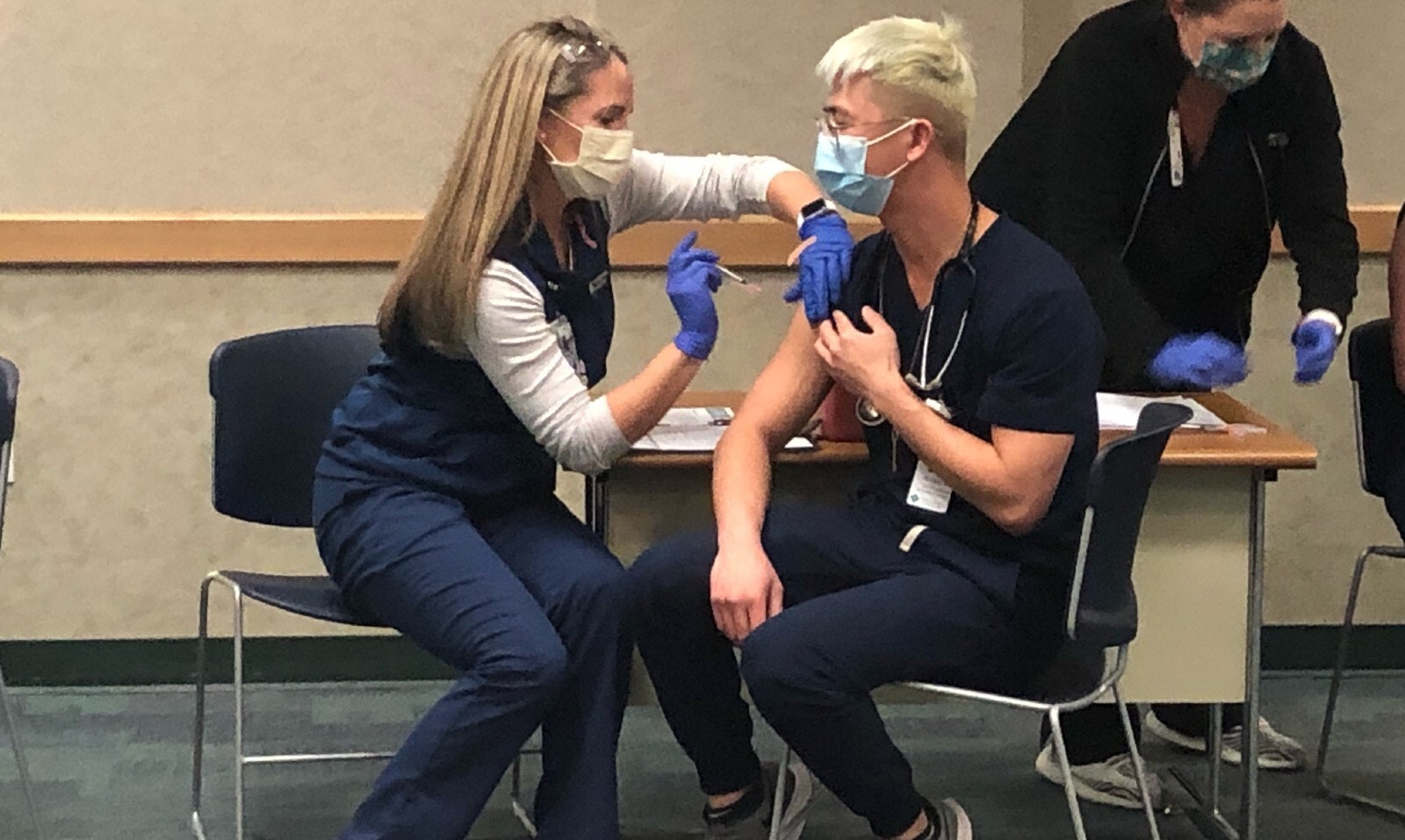A California law that punishes doctors for advising patients against taking COVID-19 vaccines took effect Sunday, alarming a Wyoming doctor and a First-Amendment expert.
Enacted Sept. 30, Assembly Bill 2098 became enforceable on the first day of 2023. It allows the state Medical Board to discipline, and possibly revoke the licenses of, California doctors who disseminate what the state calls “misinformation or disinformation” about the safety and efficacy of the COVID-19 vaccine as touted by the Centers for Disease Control and Prevention (CDC).
The bill also would penalize doctors for prescribing other COVID treatments not approved by the modern scientific consensus.
Misinformation is “false information contradicted by contemporary scientific consensus contrary to the standard of care,” the bill says, adding that the vaccines are supported by the CDC and have been approved by the Food and Drug Administration.
California Gov. Gavin Newsom when he signed the bill said it’s narrowly tailored to dodge constitutional challenges and is meant only to address “those egregious instances in which a licensee is acting with malicious intent or clearly deviating from the required standard of care.”
“I am confident,” added Newsom in a statement, “that discussing emerging ideas or treatments, including the subsequent risks and benefits, does not constitute misinformation or disinformation under this bill’s criteria.”
‘The End Of Medicine’
The new California law doesn’t sit well with retired Riverton physician Dr. Kent Stockton, who was blunt in condemning it.
“I think it’s bullshit,” Stockton told Cowboy State Daily.
Stockton said states shouldn’t have the right to police speech about science because science is meant to be challenged and remolded continuously, and because the First Amendment exists.
“Science is based on give and take, on questioning,” he said. The new law is “interfering with First Amendment rights, first of all, and second of all, it’s interfering with the doctor-patient relationship.”
Stockton said that if a doctor finds, by experience, that a treatment such as a vaccine is not in a patient’s best interest, but can’t say so, “then it goes against the Hippocratic oath as well.”
Stockton’s view of the law’s effects, if it does not get declared unconstitutional through a legal challenge, is bleak:
“It’s the end of medicine and science if it becomes political to speak your mind,” he said.
First Amendment
George Mocsary, law professor at the University of Wyoming, also doubts the law’s constitutionality.
He told Cowboy State Daily in a text that doctors who are telling patients what they, the doctors, believe to be true, and making the patient’s choices clear in a way that obtains informed consent, the law is likely to be found unconstitutional in court.
“(The law) assumes that science is some immutable truth. But it’s not,” he said. “Science is a process. It’s filled with imperfect knowledge and people.”
The suppression of dissenting voices in the scientific community could even hamper the search for scientific truth, he said.
Keep Your Law
But the law has been upheld so far in a preemptive legal challenge against it: federal case McDonald et al. vs. Kristina D. Lawson et al.
Drs. Mark McDonald and Jeff Barke sued the California Medical Board’s president and other state medical authorities Oct. 4, challenging the law as unconstitutional viewpoint discrimination. The doctors asked the court to block the law.
U.S. District Court Judge Fred W. Slaughter on Nov. 21 denied the plaintiffs’ motion for a preliminary injunction and dismissed their complaint, saying he didn’t see enough evidence that the doctors planned to violate the new law and consequently be harmed by it.
The doctors generally had argued for their right to speak out against the vaccines on social media, rather than directly to patients as the law forbids, the judge noted. Their lawsuit hinged on “bare allegations (that their) speech has been chilled by the challenged statute.”
The doctors on Dec. 29 appealed the lawsuit to the Ninth Circuit of the U.S. Court of Appeals, where the case is ongoing.
Next Case
Another California doctor, Tracy Hoeg, with other doctors sued Newsom and the state Medical Board on Nov. 1, alleging that the new law censors doctors and discriminates against minority viewpoints.
U.S. District Court Judge William B. Shubb is scheduled to hear the preliminary injunction argument on that case Jan. 23, three weeks after it went into effect.





